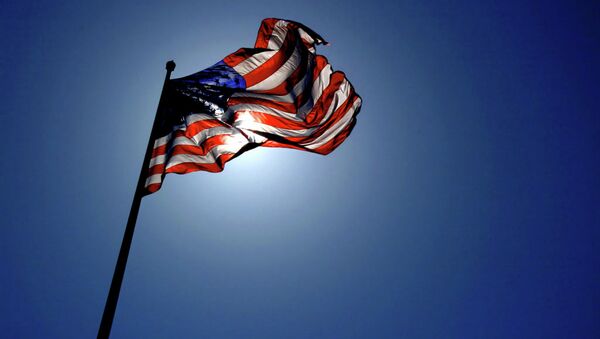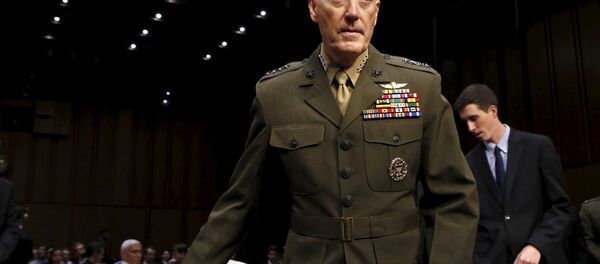"If you want to talk about a nation that could pose an existential threat to the United States, I'd have to point to Russia," Dunford told US lawmakers.
Dunford's words sparked some controversy among many in the West. Although the United States and Russia disagree on many things, the language of threats is both counterproductive and dangerous, and there are reasons why Washington shouldn't consider Moscow as "the greatest threat," the Conversation said.
First, the word "threat" to describe Russia could cause a military conflict in itself, as the vision of someone or something being "threatening" would essentially justify the use of a military response. The increase in the US military's presence in Ukraine, for example, would risk provoking a military response from Moscow, the Australian website explained.
By referring to Russia as "the greatest threat," Washington fuels anti-US sentiment in Russian society. Recent polls reveal that the share of Russian respondents who hold unfavorable views towards the United States has increased from 33 percent in 2002 to an astonishing 81 percent in 2015.
The relationship between Washington and Moscow went downhill in 2014 after the United States and its NATO allies accused Russia of violating the sovereignty of Ukraine and acting aggressively toward neighbors in the Baltics and Eastern Europe. Russia, meanwhile, denied the accusations of its alleged military involvement in Ukraine. Moscow has repeatedly warned against the increased US and NATO military build-up and exercises along Russia's borders.



